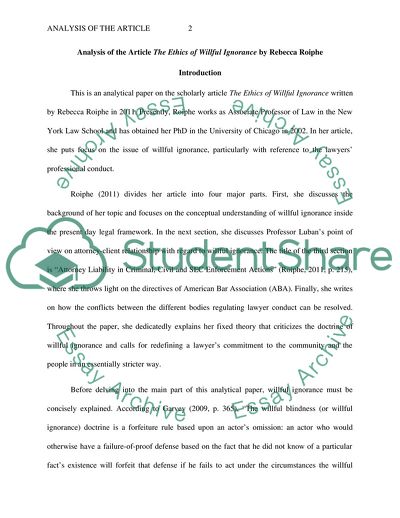Cite this document
(Analysis of the Article The Ethics of Willful Ignorance by Rebecca Essay, n.d.)
Analysis of the Article The Ethics of Willful Ignorance by Rebecca Essay. https://studentshare.org/ethics/1770688-analysis-of-the-the-article-the-ethics-of-ignorance-by-rebecca-roiphie
Analysis of the Article The Ethics of Willful Ignorance by Rebecca Essay. https://studentshare.org/ethics/1770688-analysis-of-the-the-article-the-ethics-of-ignorance-by-rebecca-roiphie
(Analysis of the Article The Ethics of Willful Ignorance by Rebecca Essay)
Analysis of the Article The Ethics of Willful Ignorance by Rebecca Essay. https://studentshare.org/ethics/1770688-analysis-of-the-the-article-the-ethics-of-ignorance-by-rebecca-roiphie.
Analysis of the Article The Ethics of Willful Ignorance by Rebecca Essay. https://studentshare.org/ethics/1770688-analysis-of-the-the-article-the-ethics-of-ignorance-by-rebecca-roiphie.
“Analysis of the Article The Ethics of Willful Ignorance by Rebecca Essay”. https://studentshare.org/ethics/1770688-analysis-of-the-the-article-the-ethics-of-ignorance-by-rebecca-roiphie.


